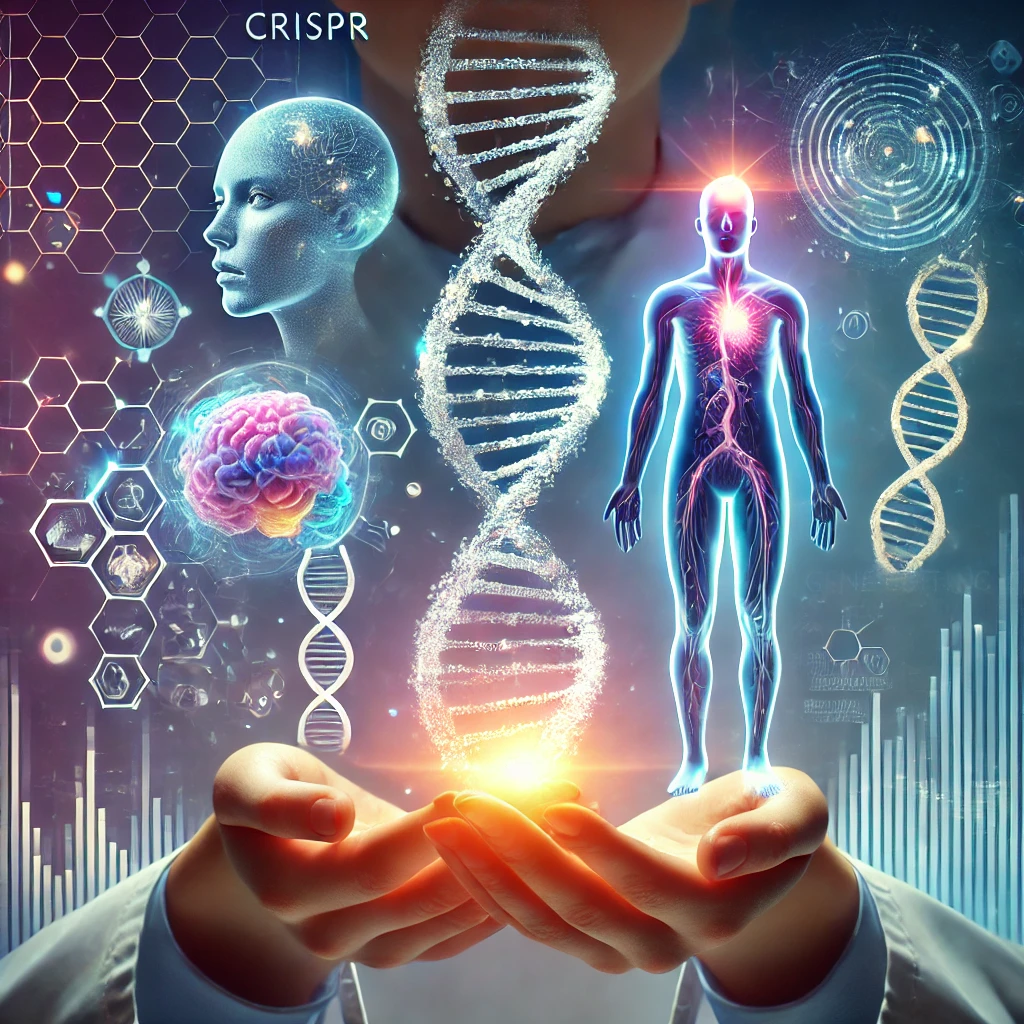
Problem Statement:
Advances in CRISPR Technology and other gene-editing technologies are revolutionizing the field of genetic engineering. These tools provide unparalleled precision, enabling scientists to edit human DNA to potentially eliminate hereditary diseases, enhance immunity, and improve overall health outcomes. However, these advancements raise significant ethical and societal concerns. On one hand, the ability to eradicate genetic disorders like cystic fibrosis, sickle cell anemia, or Huntington’s disease offers transformative possibilities for healthcare. On the other hand, the same technology could be misused to engineer human traits such as intelligence, appearance, athleticism, or even personality—leading to the controversial concept of “designer babies.”
The prospect of altering human traits beyond medical necessity introduces complex ethical dilemmas. These include questions of accessibility (who gets to benefit from these advancements ?), societal impact (will genetic enhancements deepen inequality between socioeconomic groups ?), and the broader implications for humanity (should we modify traits that influence individuality ?). Without strict regulations and oversight, gene-editing technologies risk creating a future where genetic enhancements could become a luxury commodity, exacerbating existing inequalities and reshaping societal structures.
This problem balances the promise of eliminating disease with the peril of misusing genetic tools, making it vital to explore ethical frameworks and governance to ensure the responsible use of these transformative technologies.
Pain Points:
- Ethical dilemmas: Lack of clear boundaries between therapeutic applications and enhancement purposes.
- Accessibility issues: Gene-editing treatments may only be available to the wealthy, deepening inequality.
- Risk of misuse: Potential for “designer babies” and other non-essential modifications to traits like intelligence and appearance.
- Regulatory gaps: Lack of consistent global frameworks to regulate gene-editing technologies.
- Unintended consequences: Unknown long-term effects on the gene pool and unintended mutations.
- Cost barriers: Gene-editing therapies are currently expensive and inaccessible to most patients.
- Public distrust: Fear and lack of understanding about how CRISPR and gene editing work, leading to resistance.
- Social stratification: Risk of genetic stratification between those who can afford enhancements and those who cannot.
- Religious and cultural concerns: Moral opposition from communities that view genetic modifications as “playing God.”
- Data privacy and consent: Concerns about genetic data being collected, stored, or misused by organizations or governments.
Product Vision:
Our product vision focuses on creating an affordable, accessible, and ethically governed CRISPR-based gene-editing platform. By addressing hereditary diseases while ensuring responsible use of technology, we aim to eliminate genetic disorders without promoting social inequality. The platform will be designed with three key pillars: affordability, equitable access, and education.
We will develop delivery systems that minimize off-target effects and improve treatment safety. Partnerships with regulatory bodies will ensure the framework adheres to strict ethical guidelines. Furthermore, we will launch global awareness campaigns to educate the public about the benefits and limitations of gene-editing technologies, fostering trust and informed decision-making.
In the long term, we envision a world where gene-editing therapies are a standard, affordable option for treating genetic disorders, accessible to all regardless of socioeconomic status.
Use Cases:
- Elimination of Genetic Disorders: Treat conditions like cystic fibrosis, sickle cell anemia, and Huntington’s disease.
- Cancer Treatments: Use gene editing to target and destroy cancer cells.
- Rare Disease Therapies: Develop customized solutions for ultra-rare genetic conditions.
- Prenatal Diagnostics: Offer non-invasive solutions to correct mutations before birth.
- Organ Transplants: Create genetically modified organs for better compatibility.
- Immune System Enhancements: Boost immunity to prevent hereditary immune disorders.
- CRISPR-Based Diagnostics: Develop quick diagnostic tools for detecting genetic conditions.
- Epigenetic Therapies: Modulate gene expression without altering DNA permanently.
- Global Health Solutions: Deploy solutions for low-resource regions to combat genetic diseases.
- Public Education Tools: Provide interactive educational platforms to demystify CRISPR technology.
Summary:
Advances in CRISPR and gene-editing technologies hold immense potential to revolutionize healthcare by eliminating genetic disorders and improving human health. However, these advancements also raise ethical and societal concerns, such as the risk of “designer babies,” exacerbating inequality, and long-term unintended consequences. The challenge lies in balancing the promise of gene editing with the peril of misuse, requiring strong governance, affordability, and public trust.
Research has revealed critical gaps in the market, including limited accessibility, lack of global regulatory frameworks, and public distrust fueled by misinformation. Existing competitors such as CRISPR Therapeutics and Editas Medicine focus on therapeutic applications, but affordability and equitable access remain largely unaddressed. Our proposed solution is an affordable, accessible, and ethically governed CRISPR platform aimed at eliminating hereditary diseases while safeguarding against misuse.
The roadmap includes robust R&D, collaborations with global regulators, and a public awareness campaign. By 2027, the product will be launched globally, with an emphasis on affordability and education to build trust. Future phases will focus on innovation and optimizing delivery systems.
This vision aims to position the company as a leader in ethical gene editing, creating a future where such therapies are a standard, accessible option for everyone, irrespective of socioeconomic status.